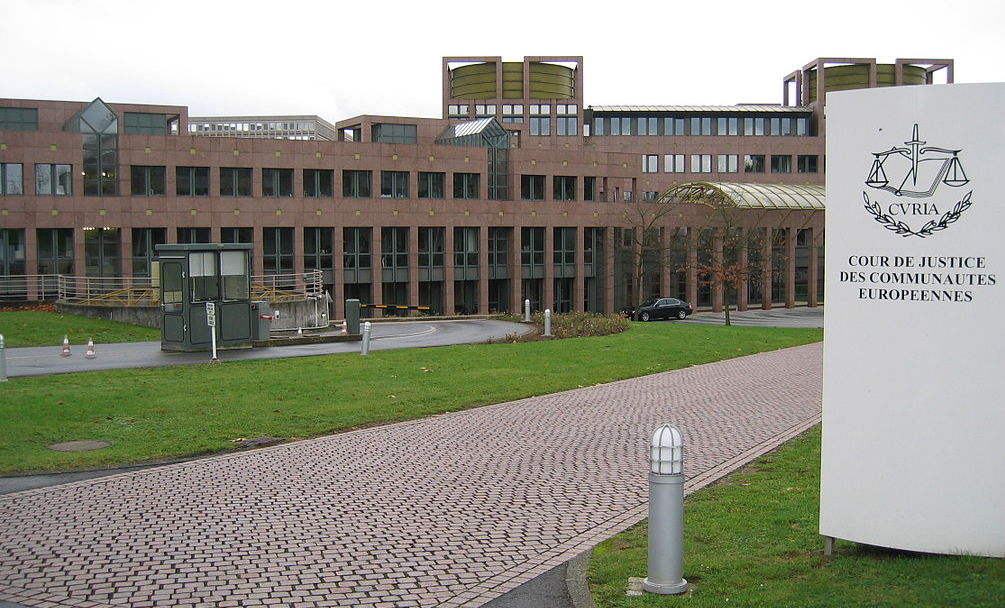Two controversial trade deals between the EU and the US and Canada have hit a stumbling block after a European Court of Justice (ECJ) decision.
The EU has long been trying to push through the Trans-Atlantic Trade and Investment Partnership (TTIP) between the US and Europe, and the Comprehensive Economic and Trade Agreement (CETA) between the EU and Canada.
The deals could lead to an increase in imports of dirty tar sands oil to Europe from Canada, open up new markets to fossil fuel companies, and allow corporations to sue EU member state governments when environmental policies threaten their profits.
But the ECJ on May 10 ruled that the commission must take into account the views of European citizens who oppose the deals.
The interests of 3.2 million people who signed a European Citizens’ Initiative to object the trade deals TTIP and CETA in 2014 must be considered by the Commission as part of the “principles of democracy and fundamental values of the EU”, the ECJ said.
After a long enquiry into the Commission’s refusal to register the proposed European Citizens’ Initiative, the ECJ has found that “nothing justifies excluding from democratic debate legal acts seeking the withdrawal of a decision”, adding “the objective behind the European citizens’ initiatives is to improve the democratic functioning of the EU by granting every citizen a right to participate in democratic life.”
Following the ruling, the rapporteur for the European United Left and Nordic Green party, Helmut Scholz, said the judgement was a “strong signal for democracy in the EU and reinforcement of the broad public criticism of neoliberal free trade agreements.”
One of the members of the citizens’ committee Michael Elfer, told news site EU Observer that the court’s ruling was “a good day for European democracy”.
“The commission’s refusal to register our initiative was arbitrary and political. They were not willing to hear the voices of citizens opposing their neo-liberal projects called TTIP and CETA,” Elfer said.
TTIP and CETA are agreements that on the surface make it easier for nations to trade bilaterally on goods and services — including Canada’s glut of tar sands oil. They also give multinational corporations greater authority on safety standards in food, labour and environmental regulation.
Both trade agreements contain the much-criticised investor state dispute clause, which would allow corporations to sue governments in business-friendly courts for making laws to protect their citizens. This lack of democratic control is what has stirred such a strong public opposition to both trade agreements.
Paul de Clerck, economic coordinator at Friends of the Earth Europe said “involving national parliaments in the ratification of free trade agreements will increase the democratic scrutiny and give citizens a stronger voice. We call on parliamentarians to reject all deals that include unfair VIP rights for foreign investors.”
Last year, following intense pressure from EU governments, the Commission decided to give the EU-Canada trade deal to the responsibility of national authorities. This turned sour when the Belgian region of Wallonia threatened not to sign off on CETA, although it was eventually ratified. The TTIP, which received more intense media scrutiny, broke down.
The European Commission will now have to decide whether or not to register the initiative or appeal the ruling. Registration does not necessarily mean success. Since the citizens’ initiative instrument was implemented six years ago, no petitions have actually been able to convince policymakers on legislation.
In a separate ruling on Wednesday, the court declared that a deal signed between the EU and Singapore in 2013 must be ratified by all member states, not just the EU’s institutions.
The precedent could now be applied to TTIP, further stalling its progress. It could also be applied to any post-Brexit trade deal with the UK, potentially scuppering the UK’s chances of a quick agreement.
Main image credit: Cédric Puisney via Wikimedia Commons CC BY 2.0
Subscribe to our newsletter
Stay up to date with DeSmog news and alerts







